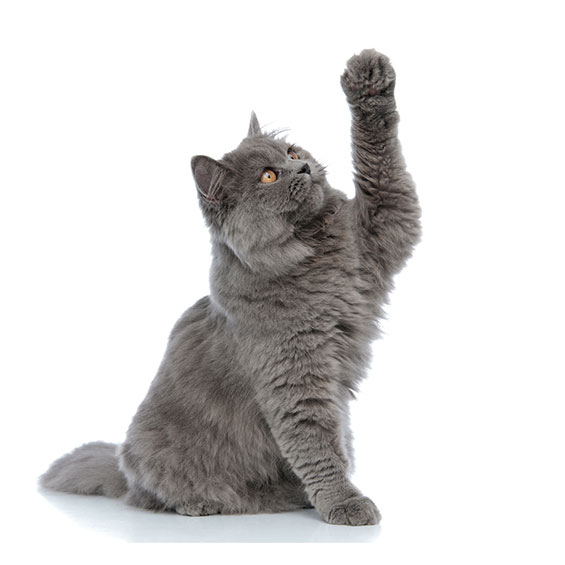Aging is an unavoidable part of life, and when it comes to our pets, some will age without any major issues, and some will need a little extra TLC. It is important to know what age-related changes look like and how to manage them appropriately, so we can ensure our pets are comfortable.
When does my pet become a senior?
This can vary between individuals and can be greatly influenced by breed, size, pre-existing health conditions and living situations, but typically:
- Small dogs – six to seven years old
- Large dogs – five to six years old
- Cats – eight to ten years old
You might notice some physical and behavioural changes, such as:
- Greying or whitening fur around the nose and mouth or throughout the coat
- A general ‘slowing down’ or a slightly less bouncy personality
- Longer and more frequent naps throughout the day
- More frequent urination, and perhaps the odd ‘accident’
- Increased vocalisation – this can be caused by increased anxiety, confusion or frustration
Common Senior Pet Ailments
Some of the age-related changes our pets may experience may be uncomfortable and impact their daily lives a little more than a greying moustache. If you notice any of the below it is important to have your vet check them out to determine a plan to help your pet
- Arthritis (inflammation of the joints, making it uncomfortable to stand up and move around).
- Loss of eyesight –caused by a clouding of the eyes, cataracts or other eye diseases.
- Loss of hearing.
- Incontinence – this is common in older pets but there are plenty of treatment plans your vet can recommend. Incontinence can also indicate urinary tract infections, kidney disease or hormonal changes.
- Weight changes – due to reduced physical activity and/or changes in hormones as they age, older pets can gain weight. You may also find that they lose weight due to a changed appetite, reduced nutrient absorption, reduced muscle mass or even a digestive illness. Weight gain or loss as a pet ages isn’t normal and should be investigated by your vet.
- Lumps and bumps are definitely more common as our pets age! It is always recommended to get them checked by a vet to rule out possible nasties.
- Smelly breath – just like us, our pet’s immune systems weaken with age, so their bodies can’t fight off germs as easily as they once did. We can see this as gum disease, tooth decay, or other infections in the mouth, leading to smelly breath. Smelly breath can mean a painful mouth for your pet (not to mention offensive to us!) so check in with our team if you notice this.
How can I make my senior pet more comfortable?
There are plenty of ways to manage your pet’s aging, and these tips are very easy to implement:
- Talk to your vet about your pet’s diet – they may need more nutritious food for nurturing specific conditions and even the inclusion of dietary supplements.
- Let your senior pet sleep inside in winter – keeping them comfy and warm will keep them feeling safe and secure, as well as help to alleviate any arthritis symptoms.
- Provide them with soft and easily accessible (not too high or low) bedding.
- Add extra water bowls around the house (and closer to their bed area) so they do not need to move around unnecessarily.
- Raise food and water bowls to prevent your pet needing to hunch to access the contents.
- Offer extra litter trays or make sure their toileting area is easily accessible.
- Keep your senior pet active with simple, low impact activities and exercises.
- Keep an eye on the temperature. As pets age they may struggle with regulating their body temperature – in winter keep your pet indoors where possible, move their bedding inside and investigate pet jackets or jumpers for some breeds.
If you have a senior pet, we invite you to come into the clinic for a health check to make sure your best friend is in tip-top shape, especially ahead of the winter months where the cooler temperatures can slow everyone down. Call us on (02) 4362 1644 or email info@ourimbahvet.com.au to book your consultation today.



